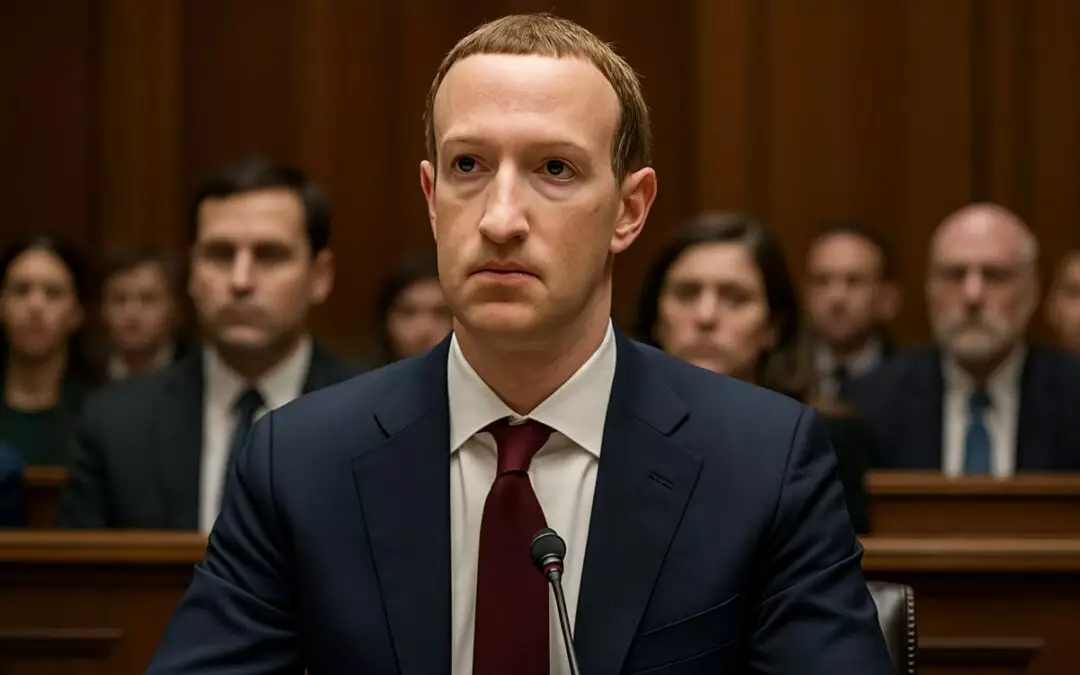Zuckerberg faces FTC antitrust lawsuit : Mark Zuckerberg's comments resurface and directly threaten Zuckerberg's ownership of Instagram and WhatsApp. Meta. Here's why everything could change.
The tech world could be witnessing an earthquake. Imagine for a moment: Meta forced to sell Instagram and WhatsApp, its two strategic jewels. This catastrophic scenario for Mark Zuckerberg could become reality thanks to an explosive case in the hands of the FTC. And the most disturbing thing is that it's Zuckerberg's own words that threaten his empire. Revealed internal communications from Zuckerberg s part of the FTC lawsuit question the very legitimacy of the acquisitions of Instagram and WhatsApp. A case to follow very closely.
The Heart of the Matter: Zuckerberg Faces His Own Words
In the FTC antitrust brief, it is not mere legal arguments that dominate, but rather incriminating quotes. Among them, this sentence that resonates like a strategic admission: "It is better to buy than to compete." These words, taken from internal exchanges during the acquisition of Instagram in 2012 and WhatsApp in 2014, form the cornerstone of the antitrust case brought by the Federal Trade Commission.
This evidence suggests that Meta's goal was less innovation than the elimination of emerging threats. Zuckerberg faces FTC antitrust lawsuit then takes an unprecedented turn: it is no longer a question of debating theoretical consequences, but of judging a deliberate strategy of digital monopoly.
Instagram and WhatsApp: acquisitions under high tension
In 2012, Facebook acquired Instagram for $1 billion. Two years later, WhatsApp joined the group for $19 billion. These colossal sums demonstrate the strategic importance of these platforms to the Meta ecosystem. But according to Zuckerberg, these acquisitions were not simply opportunistic: they responded to a logic of neutralizing emerging competitors.
In the leaked documents, Zuckerberg coldly analyzes the disruptive potential of Instagram and Path: "If they reach a large scale, they could be very disruptive for us." The tone is set. The FTC believes that these comments reveal a desire to stifle all competition rather than play the game of innovation.
A Locked Market? The FTC's Arguments
Zuckerberg faces FTC antitrust lawsuit, the regulatory agency argues that Meta has illegally maintained a monopoly on personal social media. It argues that the acquisition of Instagram and WhatsApp eliminated two major alternatives that could have offered users more choice, privacy, and innovation.
The complaint alleges a "monopoly network" consolidated through tactical acquisitions rather than fair competition. Zuckerberg loses his antitrust lawsuit to the FTC, this If it results in a regulatory victory, it could reshuffle the cards for the entire sector.
Meta's defense strategy: between regularity and integration
Meta has several lines of defense against these accusations. First, the acquisitions were approved by the authorities at the time. Second, the company highlights the billions invested to grow Instagram and WhatsApp. An FTC antitrust lawsuit should also explore the beneficial impact of acquisitions on users.
Meta points out that competition remains strong: TikTok, Snapchat, YouTube and even BeReal According to them, they illustrate a dynamic market. The monopoly argument then becomes more fragile. The company also insists on the extensive technical integration between its platforms: cross-advertising, unified messaging, shared infrastructure. Dismantling Meta would not just be a political decision: it would be a titanic technological project.
Dismantling Meta? The Consequences of Defeat
If the courts ruled in favor of the FTC, antitrust lawsuit against Zuckerberg could go down in history as a turning point in digital capitalism. The possibility of a divestment order would set a major precedent, a true structural sanction. Instagram and WhatsApp would then become independent or be sold to other players.
Besides the financial blow, the impact on Meta's image would be devastating. FTC Antitrust Lawsuit would be a milestone in the fight against excessive concentration of technological power. Other digital giants could be concerned in turn.
Our opinion
Zuckerberg faces FTC antitrust lawsuit is much more than a simple legal dispute: it questions the limits of private power in the digital economy. Mark Zuckerberg's words more than 10 years ago could today reshuffle the cards for an entire sector. If the FTC succeeds in enforcing a separation, it will mark a profound change in the way authorities regulate tech.
In any case, this standoff between Meta and the American justice system is already reshaping the future of social platforms. And whatever the outcome, it shows how much every word counts in a CEO's strategy. At ValueYourNetwork, experts in influence marketing Since 2016, we have been closely monitoring the impact of these developments on social media and their opportunities for brands. Don't hesitate to contact us to anticipate future trends.
